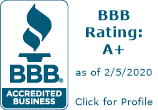How to Recycle Household Items Before Moving
As you prepare to move, consider why it is important to recycle household items. Hansen Bros Moving & Storage encourages clients to think about the environmental impact of their relocation. By recycling and responsibly disposing of unnecessary items, you can significantly reduce waste and declutter effectively. This not only helps the planet by diverting items from landfills but also simplifies your moving process. With fewer items to pack and transport, you may also find that your moving costs are lower. Start your move on the right foot by making sustainable choices that benefit both the environment and your peace of mind.
Planning Your Strategy To Recycle Household Items
Before your move, it’s wise to start the recycling process early. Create a detailed timeline that allows ample time for sorting through household items. This step is crucial in preventing the last-minute rush that often leads to simply discarding things that could be recycled. Organize your belongings into categories such as paper, plastic, and metal. By doing so, you make it easier to manage and ensure that each item is properly recycled according to material type.
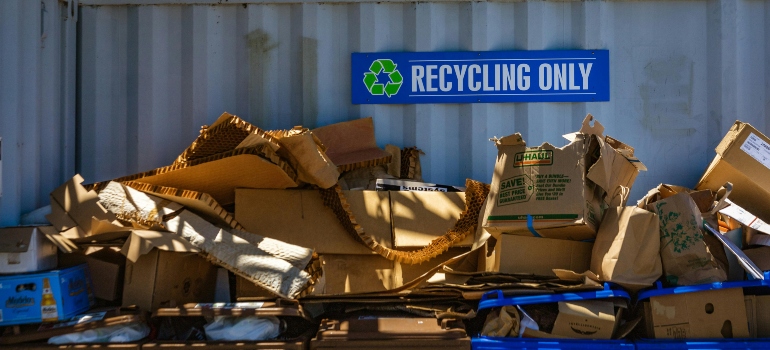
Research is key to effective recycling. Take the time to look into local recycling programs and find out what materials are accepted and how they should be prepared for recycling. Many cities offer specialized recycling centers that accept a wider range of materials, some of which might not be picked up curbside. Make a plan to visit these centers with items that can be recycled, ensuring that they are properly disposed of. This proactive approach not only aids in decluttering your home before moving but also contributes positively to the local recycling efforts, aligning with the sustainable practices promoted by moving services Seattle.
Recycling Electronics
When it comes to recycling electronics, identifying e-waste is the first step. Items such as old phones, computers, and larger appliances fall into this category. Proper disposal of these items is crucial to prevent harmful environmental impacts. Local e-waste recycling centers offer designated drop-off points, and many manufacturers have take-back programs that allow you to return old electronics for recycling. Preparing your electronics for recycling is another vital step; ensure you wipe all personal data from devices and remove any batteries that may need to be recycled separately. HB Move Management emphasizes the importance of these practices to ensure that your electronic waste is handled safely and responsibly, minimizing environmental harm and keeping your personal information secure.
Recycling Paper and Cardboard Efficiently
Recycling paper and cardboard is a straightforward yet impactful way to reduce waste during your move. Here’s how to manage these materials effectively:
- Sorting paper products: Begin by separating newspapers, magazines, and cardboard boxes. Keeping these items sorted will simplify the recycling process.
- Tips for recycling paper: Remove staples from documents and magazines to ensure they are fully recyclable. Flatten cardboard boxes to save space and facilitate easier transportation to recycling facilities.
- Utilizing curbside recycling programs: Most communities offer curbside recycling services that make it easy to recycle household items like paper and cardboard. Check the specific guidelines of your local program to ensure you’re following the rules and maximizing the effectiveness of your recycling efforts.

Effective Plastic Recycling Strategies
Understanding the various types of plastics and their respective recycling codes is essential for effective recycling. These codes, ranging from 1 to 7, are usually found on the bottom of plastic containers and packaging, indicating the type of plastic material. It’s crucial for Lakewood WA movers and their clients to properly sort and clean all plastic items before recycling. Washing and drying plastic containers removes food residue and contaminants, which can interfere with the recycling process. Once sorted and cleaned, finding local drop-off points for plastic recycling is the next step. Many communities have dedicated recycling centers or specific bins for different types of recyclables, including plastics. By educating yourself about the recycling codes and preparing plastics correctly, you can ensure that your efforts contribute effectively to recycling initiatives, reducing environmental impact as you prepare to move.
Recycling Metal Items Efficiently
Recycling metal items from around the house, such as aluminum cans and steel appliances, plays a crucial role in environmental conservation. Before taking these items to a recycling facility, it’s important to prepare them properly by cleaning and sorting them. Ensure that aluminum cans are empty and rinse out any residues to prevent contamination. Larger steel appliances should also be cleaned and sorted according to metal type, if possible.
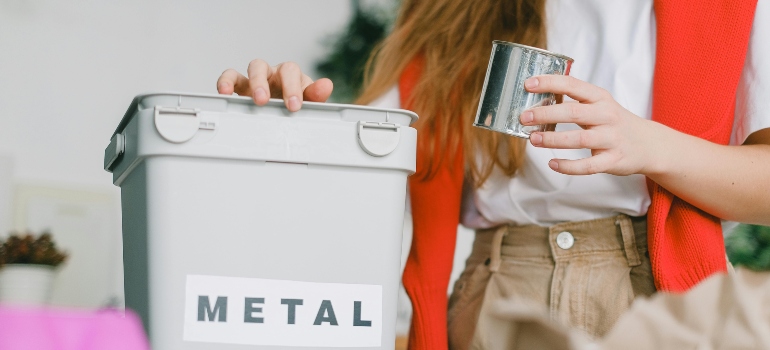
Once your metals are ready, locate your nearest local scrap metal recycling center. These centers often accept a variety of metal items and can ensure that your metals are recycled efficiently, reducing waste and helping conserve valuable resources as you organize your move.
Guidelines for Recycling Glass
Recycling glass is an effective way to reduce environmental impact while decluttering your home. Here are key steps to ensure you properly recycle household items:
- Types of glass suitable for recycling: Most commonly, glass bottles and jars can be recycled. It’s important to know that not all glass items, like certain heat-resistant dishes or mirrors, are accepted due to different melting points and compositions.
- Finding local glass recycling facilities: Check with your municipality or waste management services to locate nearby facilities that accept glass for recycling. Some areas offer curbside collection, while others might have specific drop-off locations.
Cleaning and sorting glass for recycling:
- Rinse bottles and jars to remove any residues, ensuring they are clean before recycling.
- Separate glass by color if required by your local facility—typically into clear, green, and brown categories.
Sustainable Recycling of Textiles and Clothing
Recycling textiles and clothing is vital for reducing waste and supporting sustainable practices. Start by sorting items like clothes, linens, and towels to assess their condition. Options for recycling these textiles include donating to local centers where they can find new homes or participating in textile recycling programs that repurpose fabric materials. Before donating or recycling, ensure that all textiles are clean and, if possible, repaired. Washing and mending any minor damages can greatly increase the likelihood of your items being reused rather than discarded. This approach not only helps the environment by diverting waste from landfills but also supports community programs and promotes the circular economy within the textile industry.
Recycling Furniture and Large Items
Before disposing of furniture and other large items, it’s important to assess their condition to determine if they are repairable. Items in good condition might only need minor repairs to extend their usability, thereby avoiding wasteful recycling processes. For items that are beyond repair, consider how they can be broken down and prepared for recycling. Disassembling furniture into smaller parts can make the recycling process easier and more efficient.
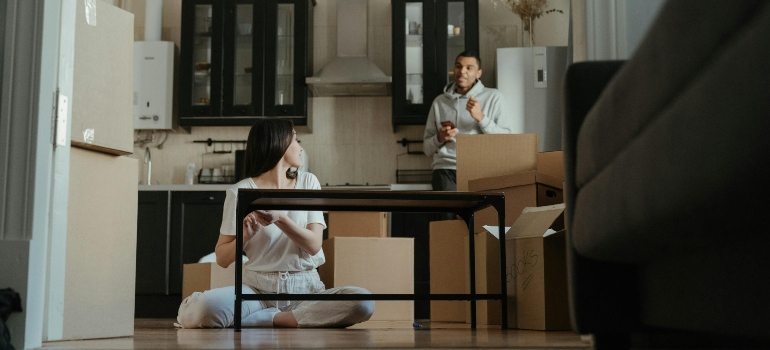
Once your furniture and large items are ready, you have a couple of options. Donating to local charities or thrift stores can give your items a second life and support community initiatives. For items that are not suitable for donation, look into bulk waste recycling options in your area. If you don’t want to keep your piano and don’t need to hire piano movers Seattle, check with local recycling centers that specialize in handling large items like pianos and bulky furniture, ensuring that these items are disposed of responsibly and sustainably. This not only helps reduce landfill waste but also supports the recycling economy.
Safe Disposal of Hazardous Household Materials
To properly recycle household items like hazardous materials is critical to ensuring environmental safety and personal health. Start by identifying hazardous items in your home, such as batteries, paint, and chemicals. These should never be thrown in regular trash due to their potential harm. Instead, use designated disposal methods such as hazardous waste collection events or specialized recycling centers equipped to handle these materials safely. When preparing to dispose of hazardous materials, always follow safety tips: wear gloves, keep materials in their original containers, and avoid mixing different chemicals. These precautions help prevent accidents and ensure that hazardous waste is managed responsibly, protecting both you and the environment from potential risks.
Maximizing the Impact of Unwanted Items Before Moving
When preparing for a move, managing unwanted items efficiently can significantly ease the process. Donating usable items and hosting sales or swap parties are excellent strategies to reduce waste and benefit both yourself and others.
Donating Usable Items
Donations can profoundly impact the community while helping you declutter. To start, identify local charities and donation centers in your area that accept items you no longer need. Ensure that all items are in good condition and clean before donating. This ensures that your contributions are beneficial and appreciated. Donation not only helps those in need but also reduces the amount of waste that might end up in landfills. As you pack your moving boxes Seattle, set aside a box specifically for items that can be given a new life through donation. This act of kindness is a simple way to lighten your moving load and assist others simultaneously.
Hosting a Garage Sale or Swap Party
Planning a garage sale requires some organization but can be quite rewarding. Start by advertising your sale locally and online to attract a good number of buyers. Price items reasonably and set up your space in an organized manner, making it easy for people to browse and buy. Alternatively, consider organizing a swap party with friends. Invite them to bring items they no longer need and set rules for exchanging goods. This can be a fun way to find new treasures and ensure items get reused instead of discarded.
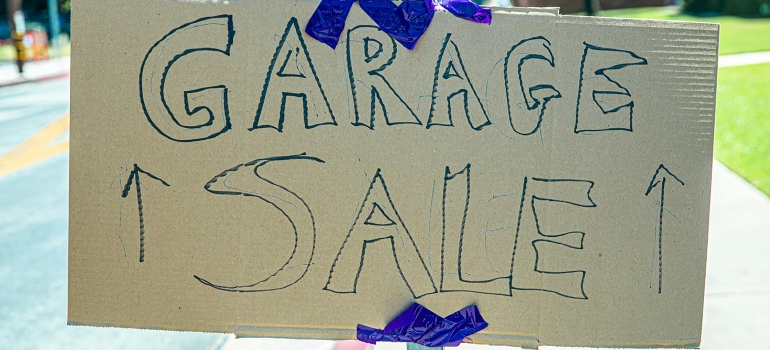
Embracing Sustainability Through Upcycling and Community Engagement
As you prepare for a move, consider the sustainable practices of upcycling and engaging with community initiatives to reduce waste and connect with like-minded individuals. Cross country movers Seattle often witness the surplus of items people discover they don’t need. Utilizing creative solutions and community resources can transform this challenge into an opportunity for positive environmental impact.
Upcycling and Repurposing Items
Upcycling provides a creative outlet to repurpose household items, turning old goods into functional or decorative pieces. Simple DIY projects, such as turning old jars into planters or refurbishing furniture, can personalize your new home while reducing waste. The process of giving new life to old items not only minimizes environmental impact but also adds a unique touch to your living spaces, reflecting your personal style through eco-friendly means.
Utilizing Online Platforms for Recycling and Selling
Platforms like eBay and its alternatives make it easy to sell or give away items you no longer need. To ensure success on these platforms, use clear photos and provide detailed descriptions and fair pricing for your items. Utilizing these online resources can help you reach a wider audience and sell or recycle household items conveniently, making the process efficient and potentially profitable.
Engaging with the Community
Participate in community recycling events and connect with local environmental groups to further your impact. This involvement not only helps in managing waste but also strengthens community ties and promotes shared sustainability goals. Encouraging neighbors to recycle household items and share resources can foster a collaborative environment where everyone benefits.
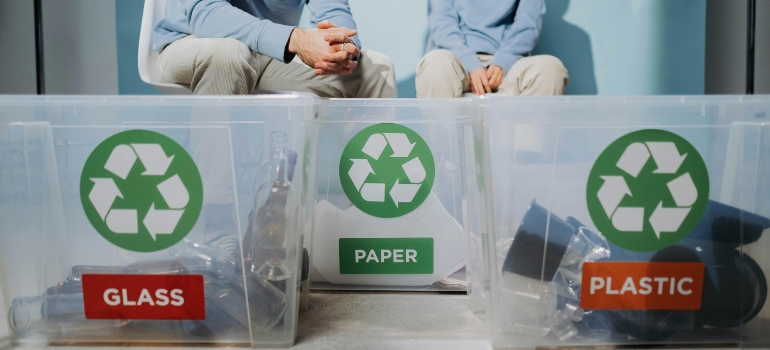
Embracing Sustainability with Moving Company Washington
As you plan your move, moving company Washington encourages you to implement robust recycling strategies. Taking the time to sort, donate, and recycle household items not only eases the moving process but also has a profound impact on both the environment and your community. By choosing to recycle household items, you help reduce landfill waste and contribute to the conservation of natural resources, demonstrating a commitment to environmental stewardship. This responsible approach can inspire others in your community to adopt similar practices, fostering a culture of sustainability. Remember, every item you recycle is a step towards a cleaner, greener planet. Let’s make each move a positive force for environmental change.
Why Choose Us
History
Hansen Bros. Moving & Storage is locally owned and operated by the same family for four generations, since 1890. We have a well-established reputation for service quality and reliability with a high percentage of repeat household and commercial clients.
Professionalism
We’re a certified ProMover by the American Moving and Storage Association with A+ rating with the Better Business Bureau, voted “Best in Western Washington” in 2009 and from 2011 to 2016 by KING5. Our company is fully licensed and insured and member of WMC and AMSA.
Value
Hansen Bros. Moving & Storage provide free, no-obligation in-home estimate and competitive rates, including low minimum rates for shipments moving under 300 miles. We’ve set a refund policy for unused packing materials and three Puget Sound locations to help clients save on travel fee costs.

